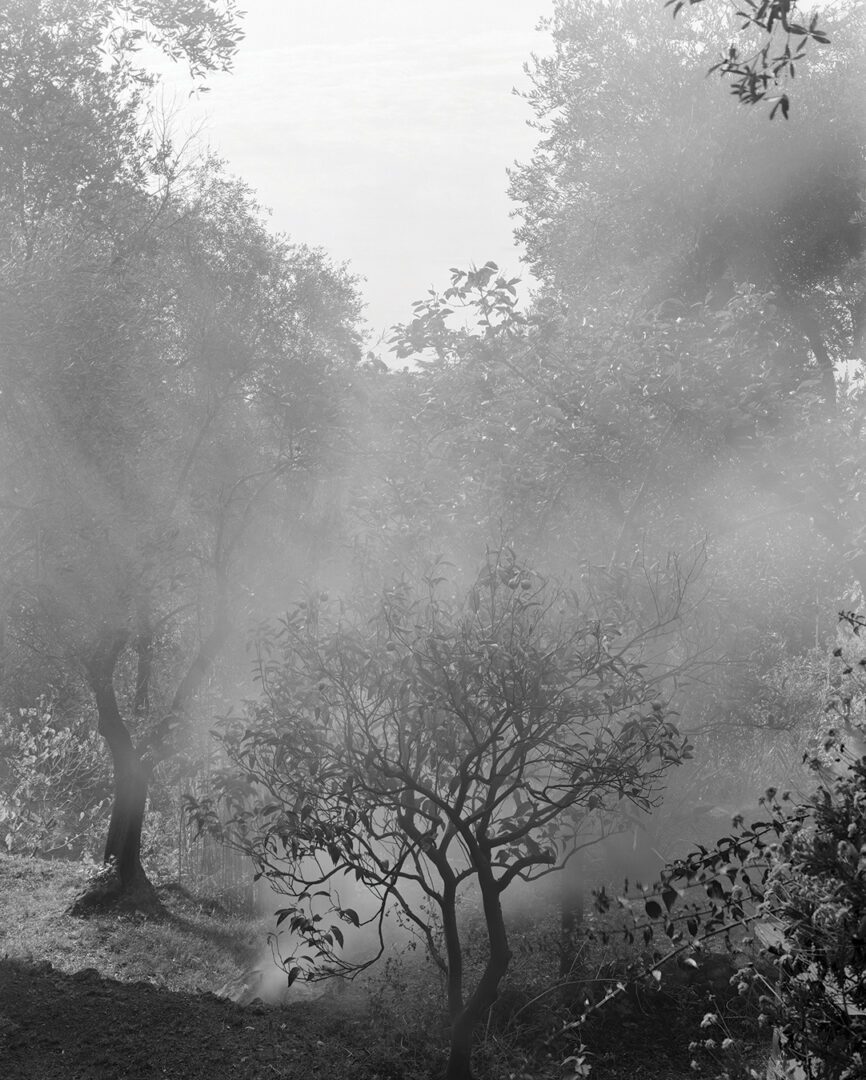Under the watchful eye of painter Isa Petrozani, Italian American photographer Regina DeLuise (b. 1959) completed her graduate programme at Villa Schifanoia in Florence, Italy. It was there that she learned to really engage with the landscape of her motherland. Over time, she began to see the environment through the eyes of a portraitist, acknowledging it as a subject “alive and full of stories.” The image-maker has taken countless photographs since these formative years studying the medium and now presents four decades of beautiful lens-based work in her first ever monograph, titled The Hands of My Friends. Published by Saint Lucy Books, this photo book is filled with drawings as well as over 100 striking black and white portraits, landscapes and still lifes that explore the visual complexities and everyday poetry of contemporary life.


“My instinct and my camera provided a path through the thicket and a clear way (one way) to remain attentive and engaged” explains DeLuise in her introduction. She continues: “The Hands of My Friends reveals how the unknown becomes recognisable to me; and how the world makes sense through the experiences, places and people I have sought out and loved.” Images span various locations, including Bhutan, France, Italy, Morocco, Nepal, South Africa and the USA. Open the pages, and you will instantly see DeLuise’s curious gaze frozen forever through the lens. She draws our eyes to striking sights. One memorable shot of the trees sticks out due to a branch that is shaped like a diver plunging into the depths. Later, a dew-covered leaf rests on someone’s leg. Another still life shows us a paper bag as light from the window behind pours through the thin material, illuminating the bundle of flowers held inside.

In DeLuise’s portraiture, she often collaborates with subjects to co-crate authentic images. Here, DeLuise credits her hefty 8×10 camera for its ability to slow down the image-making process. Unlike an instant snap taken on our smartphones, this equipment needs time – from actually capturing the image to developing the film. With the wait comes an opportunity for the people behind and in front of the camera to get to know each other. We learn about both perspectives in The Hands of My Friends through the image Felicia on Loggia (1983). It’s a shot of Felicia McCarren, a Professor in the Department of French and Italian at Tulane University, as she turns from the camera to hoist her leg onto a loggia. Opposite, McCarren’s essay The Camera Does Not Frame Me reflects on the experience and writes that image-making is “music for four hands, photographer and subject compose together. But the photographer has the vision.”


In addition to candid moments, DeLuise also successfully capture sitters scenes that are more staged. One of the most memorable examples of this is the photograph of her tutor in Isa Petrozanni (1984). Cigarette in hand, she perches on the edge of a sofa and stares down the camera. Her direct gaze pierces through her dark sunglasses; it is playful but carries a degree of authority and confidence that can only inspire admiration in the viewer. Towards the end of the book is Porch (2018), which shows a woman standing at the bottom of a staircase. She holds a phone in front of her face, poised to take a selfie in front of the painting hanging on the wall behind. Stills like these are a testament to DeLuise’s skill in achieving striking compositions and making her subject matter – whether a person, plant or object – utterly captivating.
Regina DeLuise: The Hands of My Friends | Saint Lucy Books
Words: Diana Bestwish Tetteh
Image Credits:
- © Regina DeLuise / Saint Lucy Books.





